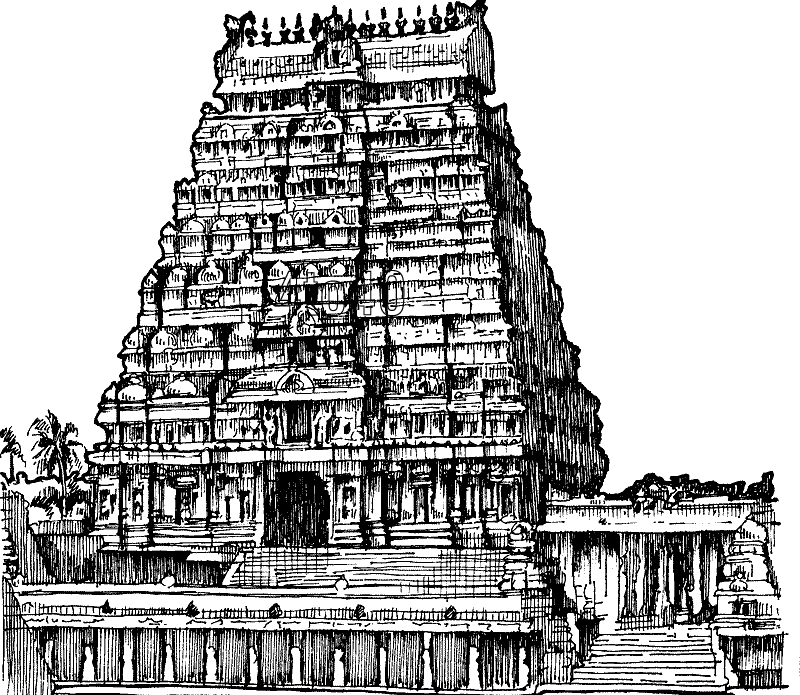LALITHA SAHASRANAMAM
@ S. Subramaniam

शांकरी (126)
Shankari (126)
Meaning
Devi, in this namah, has been addressed as Shankari or the consort of Shankara which is one of the many names of Lord Shiva.
Interpretation:

Shankara literally means the Beneficent or the giver of bliss and therefore Devi's name Shankari should be understood as to mean the same thing - giver of bliss.
Origin of the word Shankara / Shankari is not exactly known but from time immemorial the Lord has been addressed by this name. In Sri Rudram, Anuvakam (chapter) 8, we find a mention about this name:
नमः शंकराय च मयस्कराय च
Namah Shankaraya cha Mayaskaraya cha

Opinions of Scholars are divided over the interpretation of word Shankara / Shankari. According to some it should be split as Sham + Kara in which Sham stands for auspicious / bliss and Kara means maker or the one who is the maker (giver) of auspicious things.
Others view it as Shank + Hara in which Shank refers to doubts and Hara means remover. Therefore Shankara / Shankari should be understood as the one who clears all doubts - or the one who plays the role of a Guru / teacher.
Adi Shankara and Ashtadasa Shakti Peetha Sloka

Among the numerous compositions by the great saint, Ashtadasa Shakti Peethas Sloka is one. Adi Shankara describes, in this sloka, the select Eighteen Shaktipeeth temples and the first name in the list is that of the one located in Trincomalee, Sri Lanka, where the name of the Devi is Shankari.
Lankayam Shankari Devi, Kamakshi Kanchika pure
Pradyumne Shrinkhala Devi, Chamunda Krouncha pattane
It is believed that Ravana used to be a regular visitor / worshiper of Devi of this temple.
Author's Notes
Lord Shiva is also considered as the head of both dance (aadal in Tamil) and song / music (paadal in Tamil). While he is addressed as Nataraja for the dance part, he is addressed as Shankara for the music part.

Dhira Shankarabharanam, commonly known as Shankarabharanam, is a raga in Carnatic music. It gets this name because the raga contains many Gamakas (ornamentations). The raga is dedicated to Lord Shiva and hence the prefix Shankara. The Lord is referred to as Shankara Naada Sareera Para or the Lord who is high and above music.
Disclaimer: All matters contained in this article are the property of www.templesofasia.com. The opinions expressed in this article are purely that of the author. The author alone is responsible for the accuracy, authenticity, completeness and validity of all the information in the article.


Commentaires